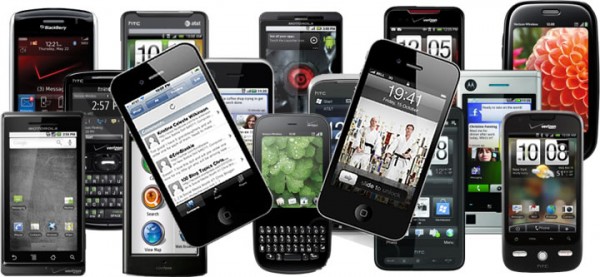The Dominance of Smartphones

Smartphone. A term that can be loosely defined as any device that combines the features of a mobile phone and a computer. They’re everywhere.
Barely six years ago, the only smartphones on the market were Blackberry devices, which were predominantly meant for the business market, and Windows Mobile, which was about as well received as Windows ME. Then in 2007, Steve Jobs received the idea for the iPhone and magnanimously (read: for $300 on a two-year contract with the worst wireless network in the nation) gave the world a smartphone that was, in every conceivable way, miles above its competitors. The iPhone sold like hotcakes, and then Google invented the Android operating system, which sold even better and what do you know – now almost 70% of all phones in the U.S. are smartphones. As stated earlier: smartphones are everywhere.
This nationwide trend extends to High School West, where the majority of students and staff seem to own smartphones, but there are still people in West who do not own smartphones. What do they think about this? Senior Harry Kolk, one of the last of a dying breed of feature phone owners, commented, “It sometimes feels as if society says you need [a smartphone]. I also don’t see any legitimate reason to have one, at least not as a student.” He also said that he feels “different from the main crowd,” a statement which serves to indicate the position of smartphones as a sort of status symbol. Senior Arindam Jurakhan, owner of a Droid Razr smartphone, agreed and added, “Although I don’t [personally] do it, peers condemn others who don’t have a smartphone.” He commented that regular phone owners are starting to become the minority now. Senior Michael Pastier, owner of an iPhone, stated that people who don’t use smartphones are being viewed as “behind the times.” Even people with Blackberries are being seen as out of step with the times, as Blackberries are now “outdated.” Lea Silverstein, owner of an iPhone, voiced similar opinions, saying that in modern society it is for all intents and purposes absolutely unacceptable to not have a smartphone. She explained, “If somebody doesn’t have a smartphone, it’s almost prehistoric. People without smartphones are looked at as behind the times or uncool.”
Smartphones have become so popular because they are tools for socializing and gaining information. Smartphones are starting to become necessary so a person can, as Pastier put it, “Google when they need to Google, call when they need to call, tweet when they need to tweet, and Facebook when they need to Facebook.” These smartphones allow us to be constantly connected to everyone in a variety of ways. People now have access to more information, contacts and means of interaction than at any time throughout history. This is a time in human history when we will have to learn how to balance constant connection with solitude, and figure out how to keep social interaction human in an age of silicon.








